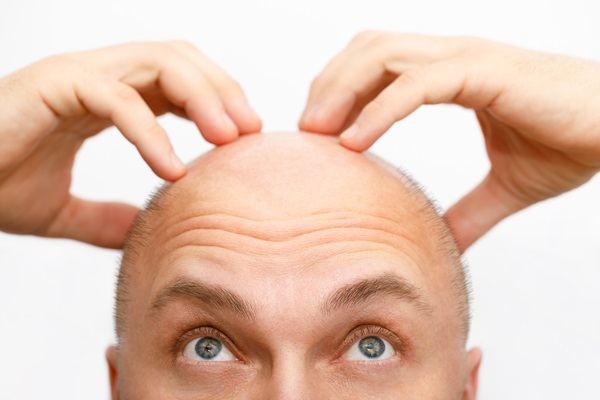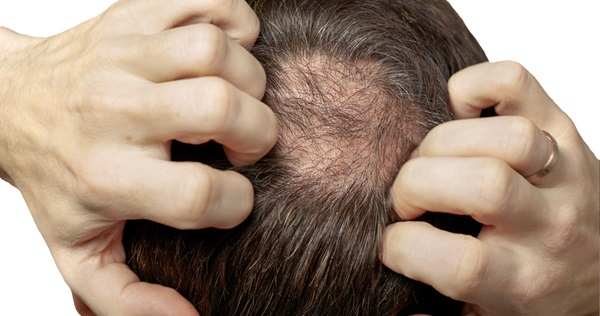Hair RestorationSchaumburg, IL
Persistent hair loss can cause distress and feelings of self-consciousness. Fortunately, we offer hair restoration procedures to treat thinning hair and hair loss. If you are interested in pursuing treatment, contact us to determine which option best meets your needs.
Hair restoration treatments are available at Dillon Hair Restoration in Schaumburg and the surrounding area. You should not hesitate when it comes to preventing hair loss. Call us at 847-241-2132 to learn more about our services or schedule an appointment.
Causes of Hair Loss
Although anyone can suffer from hair loss, it is more prevalent in men than women. According to a 2017 study, 60% of men and 50% of women experience androgenetic alopecia and irreversible hair loss worldwide. Hair loss may be permanent or temporary. It is important to determine the cause and type of hair loss so that patients receive the right treatment option.
Hereditary hair loss with age is the most common cause of baldness. A study by the American Academy of Dermatology found that 80 million American men and women suffer from hereditary hair loss. Other common causes of hair loss include hormonal changes, medical conditions, stress, and medications.
Hair Transplants
Hair transplants can restore thinning hair or bald areas of the scalp with visibly long-lasting results. These procedures involve moving existing hair into an area with thin or no hair. The best candidates for hair transplants are people who have experienced significant hair thinning for many years or have lost hair due to trauma, burns, or cosmetic procedures.
Hair transplants are usually more effective than over-the-counter hair restoration products. Most patients will see 60% of new hair growth six to nine months after the procedure. The two main types of hair transplants are follicular unit extraction (FUE) and follicular unit transplantation (FUT).
Understanding FUE Hair Transplants
FUE hair transplants have become a more popular hair restoration treatment than FUT procedures. During this procedure, our surgeon will use micro punches to extract individual hair follicles from the patient’s skin and move them to a part of the scalp where the hair is sparse or absent. FUE hair transplants help the hair at the transplant site appear thicker by replacing old follicles with new hair follicles that can grow hair.
FUE hair transplants are minimally invasive procedures with a quicker recovery time than other hair transplant procedures. Although there are no large studies that list specific hair transplant success rates, several small studies and articles attest to FUE’s effectiveness. A 2016 study of 79 participants who underwent FUE treatment with body hair reported an average satisfaction score of 8.3 out of 10.
Laser Hair Restoration
Low-level laser therapy, also known as red light therapy or cold laser therapy, is another hair restoration option. This procedure involves irradiating photons into the scalp tissue. The weak cells in the scalp tissue absorb the photons, encouraging circulation and stimulation for hair growth.
Laser treatment for hair loss is a non-invasive and painless procedure that can increase hair strength. While laser treatment can help people in the early stages of hair loss, it appears to be less effective for people in advanced hair loss stages. To see results, patients may need several sessions a week for some months. We may recommend that patients continue treatments to maintain their hair restoration results.
FUE Hair Transplant and Laser Hair Restoration Candidacy
Overall, suitable candidates for FUE hair restoration are over the age of 25 to 30. This age is when hair thinning, or loss has stabilized, and our doctor can establish a pattern. On top of this, the right candidate should be in good health.
Laser hair therapy is effective for men and women with thinning hair or mild to moderate hair loss. Since laser hair restoration cannot revive a completely dormant hair follicle, people with completely bald areas are not good candidates. The best candidates for laser hair therapy are people with androgenetic alopecia and early hair loss, between one to seven years.
Call Us Today
Hair restoration treatments may be able to prevent and even reverse hair loss. Our team at Dillon Hair Restoration can help. Call us at 847-241-2132 to schedule an appointment or learn more about our services.
Frequently Asked Questions
How does laser hair restoration feel?
Laser hair restoration utilizes non-invasive, pain-free light technology. There are no scalpels, cutting, or burning of tissue involved in this procedure. Studies have shown that low-power laser application can relieve pain and stimulate and enhance cell function.
Who should not receive a hair transplant?
Although hair transplant surgery can help many people, it is not the right treatment for everyone. People with serious health complications such as heart disease, kidney or liver failure, and diabetes may not be suitable candidates for hair transplants. These procedures are also not ideal for individuals with blood-borne illnesses or hemophilia.
How is hair loss diagnosed?
Before our doctor can make a diagnosis, they will ask about the patient’s diet, hair care routine, medical, and family history. Patients may also receive a blood test to find the underlying medical condition causing hair loss or a pull test to determine the shedding process stage. Our doctor may also perform a scalp biopsy to determine if hair loss is due to an infection or light microscopy to uncover a possible hair shaft disorder.
How does a FUE hair transplant feel?
FUE hair transplants are not painful procedures. Patients will receive local anesthetics to minimize any pain or discomfort. Most patients report very little or no pain after the procedure. People that do experience some pain may use over-the-counter pain medication to manage discomfort.
Why is hair loss more common in men than women?
Men are more prone to androgenetic alopecia because of the hormone dihydrotestosterone (DHT), a byproduct of testosterone. Men are constantly producing testosterone, which also means they are producing DHT. This hormone production causes men to be more likely to lose their hair than women who lack the same genetic disposition to hair loss.
Contact Us
Dillon Hair Restoration is located at 890 E Higgins Rd Ste 158 Schaumburg, IL 60173.





